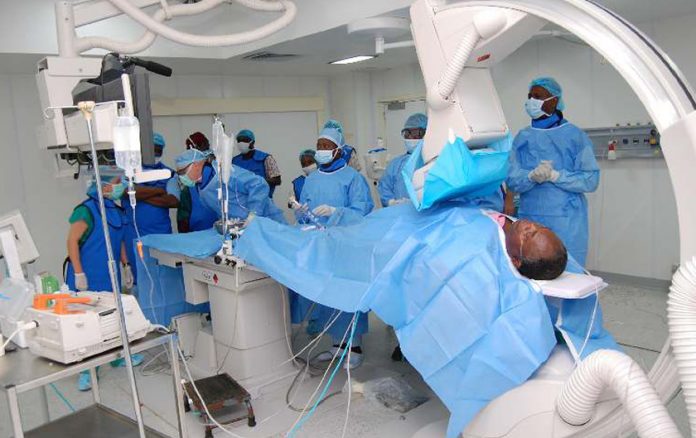Each passing session, new indices emerge to buttress the level of underdevelopment in Africa. The latest index is in the area of heath care. It says that patients in African hospitals are twice as likely to die after surgery than the average patient across the globe. The index shows that the most common complications suffered after operations are infections.
These are the findings of a new study, published in the medical journal, The Lancet, which reports on a survey covering 11,422 patients in 247 hospitals in 25 low- and middle-income countries between February and May last year. The findings were published in The Lancet this week.
The study is believed by the researchers who carried it out to be the most comprehensive assessment of its kind in Africa. It found that African hospitals suffer a higher post-operative death rate than the global average despite patients being younger with a lower risk profile and experiencing lower occurrences of complications.
The study showed that most deaths, many of which could have been prevented, occurred in the days following surgery: “Our findings showed that one in five surgical patients in Africa developed a peri-operative complication that is, one which occurs around the time of surgery, following which, one in ten patients died”.
According to the report, African surgical hospitals are under-resourced with far below the recommended number of specialist surgeons, obstetricians and anesthesiologists. The number of surgical procedures carried out in Africa is well below the global average, and they tend to be urgently needed rather than scheduled elective surgeries.
The report also says that “Most surgical procedures were done on an urgent or emergency basis, and a third were caesarean deliveries. Importantly, 95 percent of deaths occurred after surgery, indicating the need to improve the safety of peri-operative care.”
Reporting on the implications of its findings, the study said: “Our findings suggest a high incidence of potentially avoidable deaths among low-risk patients after surgery, largely caused by a failure to identify and treat life-threatening complications in the peri-operative period”.
African medical analysts who have looked at the study believe that the key factor borders on limited availability of human and hospital resources. They are of the view that despite the positive effect of the global safe surgery campaign, surgical outcomes will remain poor in Africa unless the peri-operative care of patients with deteriorating physiological function is addressed. In this direction, government at all levels and affluent organizations and individuals should allocate sufficient resources to the health sector.


















